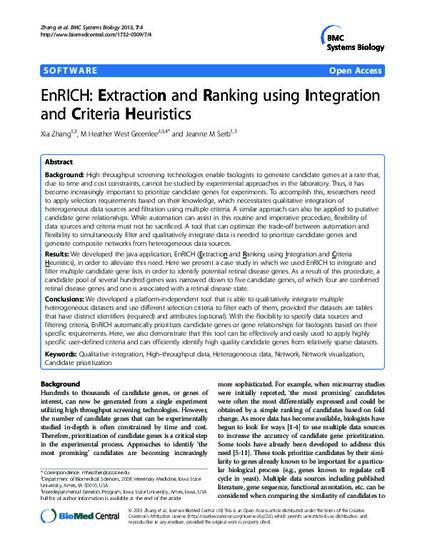
Background: High throughput screening technologies enable biologists to generate candidate genes at a rate that, due to time and cost constraints, cannot be studied by experimental approaches in the laboratory. Thus, it has become increasingly important to prioritize candidate genes for experiments. To accomplish this, researchers need to apply selection requirements based on their knowledge, which necessitates qualitative integration of heterogeneous data sources and filtration using multiple criteria. A similar approach can also be applied to putative candidate gene relationships. While automation can assist in this routine and imperative procedure, flexibility of data sources and criteria must not be sacrificed. A tool that can optimize the trade-off between automation and flexibility to simultaneously filter and qualitatively integrate data is needed to prioritize candidate genes and generate composite networks from heterogeneous data sources. Results: We developed the java application, EnRICH (Extraction and Ranking using Integration and Criteria Heuristics), in order to alleviate this need. Here we present a case study in which we used EnRICH to integrate and filter multiple candidate gene lists in order to identify potential retinal disease genes. As a result of this procedure, a candidate pool of several hundred genes was narrowed down to five candidate genes, of which four are confirmed retinal disease genes and one is associated with a retinal disease state. Conclusions: We developed a platform-independent tool that is able to qualitatively integrate multiple heterogeneous datasets and use different selection criteria to filter each of them, provided the datasets are tables that have distinct identifiers (required) and attributes (optional). With the flexibility to specify data sources and filtering criteria, EnRICH automatically prioritizes candidate genes or gene relationships for biologists based on their specific requirements. Here, we also demonstrate that this tool can be effectively and easily used to apply highly specific user-defined criteria and can efficiently identify high quality candidate genes from relatively sparse datasets.
Available at: http://works.bepress.com/jeanne_serb/6/

This article is from BMC Systems Biology 7 (2013): 4, doi:10.1186/1752-0509-7-4. Posted with permission.